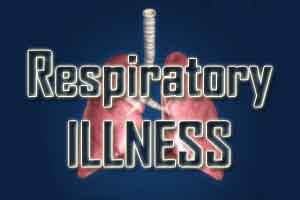- Home
- Editorial
- News
- Practice Guidelines
- Anesthesiology Guidelines
- Cancer Guidelines
- Cardiac Sciences Guidelines
- Critical Care Guidelines
- Dentistry Guidelines
- Dermatology Guidelines
- Diabetes and Endo Guidelines
- Diagnostics Guidelines
- ENT Guidelines
- Featured Practice Guidelines
- Gastroenterology Guidelines
- Geriatrics Guidelines
- Medicine Guidelines
- Nephrology Guidelines
- Neurosciences Guidelines
- Obs and Gynae Guidelines
- Ophthalmology Guidelines
- Orthopaedics Guidelines
- Paediatrics Guidelines
- Psychiatry Guidelines
- Pulmonology Guidelines
- Radiology Guidelines
- Surgery Guidelines
- Urology Guidelines
Preoperative evaluation of Respiratory Diseases : Updated ESA guidelines

European Society of Anaesthesiology (ESA) has released its latest recommendations on the preoperative evaluation of the adult undergoing noncardiac surgery. The present guidelines are an update of 2011 European Society of Anaesthesiology (ESA). The purpose of the guidelines is to present recommendations based on the available relevant clinical evidence. Due to the lack of well-performed randomized studies on the topic, many recommendations rely to a large extent on expert opinion and may need to be adapted specifically to the healthcare systems of individual countries.
For the present revision of the guidelines, ESA formed a task force comprising of members of the previous task force, ESA scientific subcommittees and volunteers from ESA and national societies who selected relevant systematic reviews with meta-analyses, randomized controlled trials, cohort studies, case-control studies and cross-sectional surveys from different electronic databases. The Grading of Recommendations Assessment, Development and Evaluation (GRADE) system was used to assess the level of evidence and to grade recommendations.
Pulmonary complications, including pneumonia, respiratory failure, exacerbation of chronic lung disease and atelectasis, pose a clinically significant postoperative risk.
Key Recommendations for preoperative evaluation of Respiratory disease, smoking, obstructive sleep apnea syndrome are as follows :
- Routine pre-operative chest radiographs are not recommended as they rarely alter peri-operative management
- Patients with obstructive sleep apnoea syndrome should be evaluated carefully for a potentially difficult airway and that special vigilance is required in the immediate postoperative period
- Use specific questionnaires to screen for obstructive sleep apnoea syndrome when polysomnography is not available
- Pre-operative diagnostic spirometry should not be used as a general measure to predict the risk of postoperative complications in noncardiothoracic patients
- Use continuous positive airways pressure (CPAP) in patients with obstructive sleep apnoea syndrome to reduce hypoxic events
- Pre-operative IMT reduces postoperative atelectasis, pneumonia, and length of hospital stay
- There is insufficient evidence to indicate that short-term cessation (<4 weeks) of smoking decreases the rate of postoperative complications
- Smoking cessation of at least 4 weeks prior to surgery reduces postoperative complications
- Pre-operative incentive spirometry does not necessarily help in the prevention of postoperative pulmonary complications (PPCs)
- Pre-operative inspiratory muscle training (IMT) reduces postoperative atelectasis, pneumonia, and length of hospital stay
For further information click on the link: 10.1097/EJA.0000000000000817

Disclaimer: This site is primarily intended for healthcare professionals. Any content/information on this website does not replace the advice of medical and/or health professionals and should not be construed as medical/diagnostic advice/endorsement or prescription. Use of this site is subject to our terms of use, privacy policy, advertisement policy. © 2020 Minerva Medical Treatment Pvt Ltd